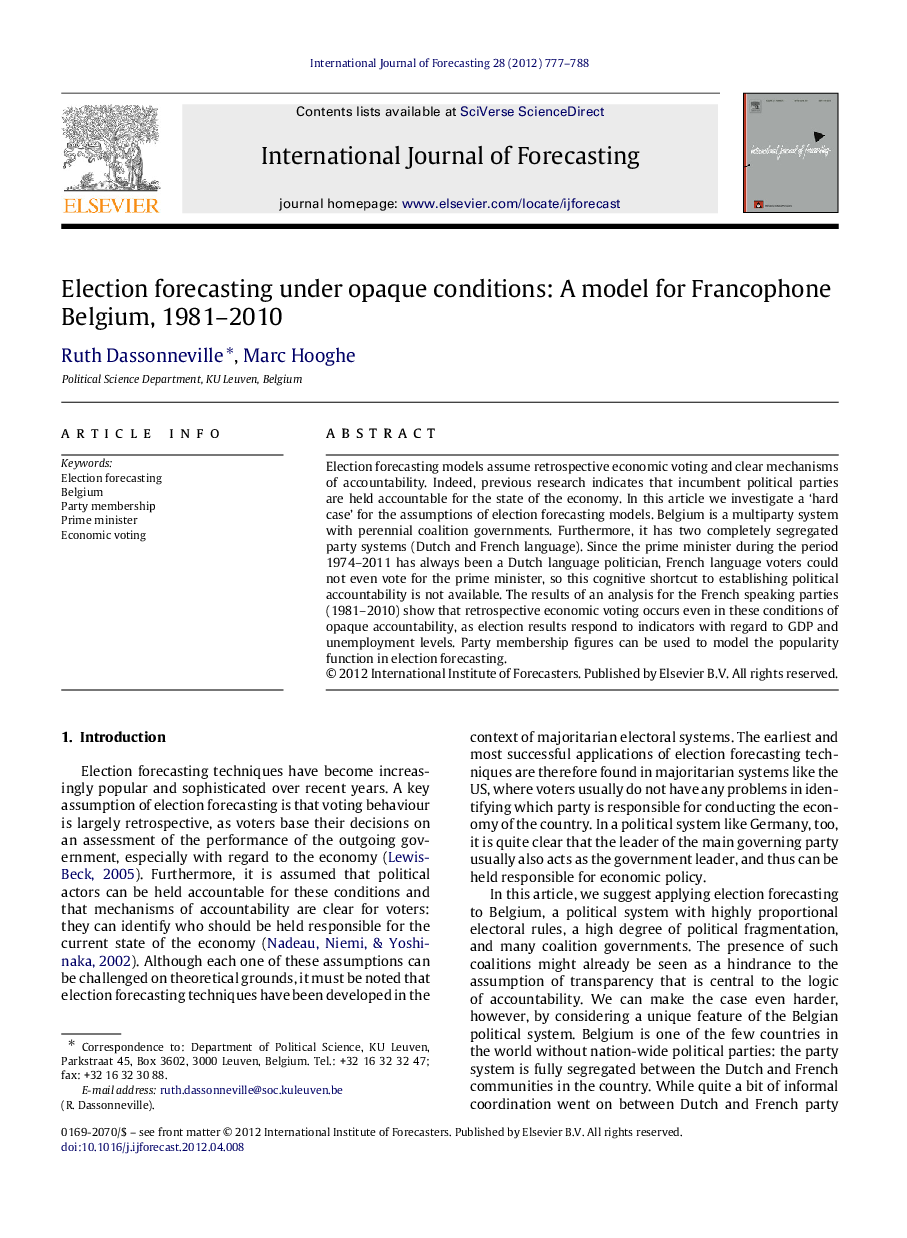| Article ID | Journal | Published Year | Pages | File Type |
|---|---|---|---|---|
| 999634 | International Journal of Forecasting | 2012 | 12 Pages |
Election forecasting models assume retrospective economic voting and clear mechanisms of accountability. Indeed, previous research indicates that incumbent political parties are held accountable for the state of the economy. In this article we investigate a ‘hard case’ for the assumptions of election forecasting models. Belgium is a multiparty system with perennial coalition governments. Furthermore, it has two completely segregated party systems (Dutch and French language). Since the prime minister during the period 1974–2011 has always been a Dutch language politician, French language voters could not even vote for the prime minister, so this cognitive shortcut to establishing political accountability is not available. The results of an analysis for the French speaking parties (1981–2010) show that retrospective economic voting occurs even in these conditions of opaque accountability, as election results respond to indicators with regard to GDP and unemployment levels. Party membership figures can be used to model the popularity function in election forecasting.
